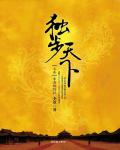
Unrivaled In The World
Author : 李歆
Genres : Urban-Fi
Status: Completed
Description:
The orphaned female photographer, Bu Youran, unexpectedly traverses four hundred years of time during an ancient tomb exploration, entering the era of Nurhaci, with her soul attaching itself to the most beautiful woman of the Jurchen, Dong Ge.
Historical records: Dong Ge, full name Ye He Na La Bu Xi Ya Ma La, lived to the age of thirty-four
Folklore: Dong Ge was born with the incantation "capable of prospering or destroying the world." From the age of ten, he caused Nurhaci to continuously wage wars, possessing a legendary experience of "one woman causing the downfall of four nations," and became one of the "seven great hatreds" in Nurhaci's life
What changes will occur in the life and love of a mysterious woman from four hundred years ago when she possesses the soul of a modern person? When a contemporary woman suddenly intervenes in a predetermined history, facing the arrangements of fate, will she be able to adapt to her new identity? How will she respond to the overwhelming advances of affection? What kind of extraordinary legend will she ignite in her brief remaining life?
Please allow the classic time-traveling writer Li Xin to narrate a romantic classic from four hundred years ago with the most delicate brushstrokes
The most beautiful woman of the Jurchen, born in 1582 in Lishu County, Jilin Province, is recorded in historical texts as "Old Woman of the North Pass." Her full name is Yehenala Buxiya Mala, the daughter of Bu Zhai (also known as Bu Zhai), the leader of the Yehe tribe, and the sister of Bu Yanggu (also known as Bai Yanggu), as well as the niece of Na Lin Bu Lu.
At that time, the Jianzhou Jurchens engaged in a fierce struggle for survival against several Mongolian tribes as well as the Haixi Huren, Yehe, Hada, Ula, and Huifa tribes, centered around Buxiyamala. This martial drama, featuring a beautiful woman, was directed by Buyangu, but ultimately, it was Nurhaci who benefited from it. Buxiyamala, who sacrificed her love for the sake of beauty, did not marry a Mongolian until the age of thirty-three, and was thus also known as "Yehe Old Woman." Tragically, she died the year after her marriage in 1616. In 1618, Nurhaci's manifesto against the Ming, titled "Seven Great Hatreds," specifically referred to Buxiyamala in its fourth point.
The Empress was born in the thirty-seventh year of the Wanli era (1609), the daughter of the Mongolian Khorchin prince Zhaisang, with the surname Borjigit. Her Mongolian name is Kharijul, and her Chinese translation is Hailanzhu.
There are no records of Hai Lan Zhu's anecdotes prior to the age of twenty-six in the official history, with relevant documentation beginning in the eighth year of Tian Cong (1634). Hai Lan Zhu was personally sent to Shengjing by her brother Wu Ke Shan to marry Huang Taiji. In the first year of Chong De, Huang Taiji conferred the title of "Consort Chen" upon Hai Lan Zhu and named her palace "Guan Sui Palace"
In the second year of Chongde, the Empress gave birth to the eighth prince. Unfortunately, this child was destined for a short life and passed away before he could even be named. The death of her beloved son dealt a heavy blow to the Empress's spirit, ultimately leading her to fall into a state of depression. As the Empress lay on her deathbed, Huang Taiji was commanding troops on the battlefield at Songshan. Upon learning of her critical condition, he immediately hastened back to Shengjing. By the time he entered the Guan Sui Palace, the Empress had already returned to the Jade Pool, having lived for thirty-four years.
To express his mourning for his beloved consort, Huang Taiji held a grand funeral for the Consort Chen, bestowing upon her the posthumous title of Minhui Gonghe Yuanfei. Two years after the death of Consort Chen, Huang Taiji also commanded his return to the netherworld.
Chapters
Copyright © NovelEase 2024